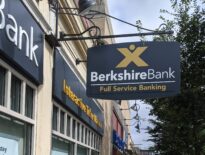New Massachusetts decarbonization regulations will drive up costs of single-family homes by nearly $23,000, according to the findings of an industry study.
The Home Builders & Remodelers Association of Massachusetts also predicts the cost of multifamily construction will rise another 2.4 percent in communities that adopt the state’s new specialized stretch energy code.
Massachusetts Institute of Technology’s Center for Real Estate and Wentworth Institute of Technology researchers surveyed contractors and engineers on the additional costs associated with complying with the specialized stretch code and performed energy modeling on houses to estimate costs.
“This was looking at the real boots-on-the-ground estimates of building homes. The costs are real,” said Rob Brennan, a real estate attorney for Smolak & Vaughan in North Andover, and chair of the builders association’s government affairs committee.
The group said more public subsidies will be needed to avoid passing along the costs to residents and adding to Massachusetts’ housing affordability crisis. The study estimates that new costs associated with the opt-in code would place single-family home ownership out of reach for up to 33,000 additional households.
More landlords may pass along utility costs to tenants as they switch from collective boilers to air-source heat pump systems, the report notes, placing additional housing cost burdens on low-income households and generating more demand for home energy assistance programs.
Researchers surveyed contractors on incremental costs to install insulation, windows, appliances and HVAC systems that comply with the opt-in code.
The code has been adopted by 18 cities and towns, with the first implementation taking effect July 1. It requires builders to design buildings with tight envelopes, pre-wire for future electric heating systems and install solar arrays when feasible.
State and Boston officials recently announced new programs to offset the financial costs for multifamily projects.
In opting into the new code, Boston Mayor Michelle Wu announced a $10-million grant program that the city will provide to affordable housing owners for retrofits.
Gov. Maura Healey this month announced the creation of a community climate bank, which will leverage private investment to pay for decarbonization retrofits starting with affordable housing properties. The program is starting with $50 million in state funding, but the administration is counting a future infusion of federal funding from the Inflation Reduction Act, which earmarks $369 billion over the next decade for climate programs. One study by Cadmus Group estimated the total cost of decarbonizing commercial and multifamily properties in Greater Boston at $33 billion.
The homebuilders group report also supports the creation of a statewide online climate clearinghouse, where developers and residents could access all public incentive programs.
The state’s existing energy subsidy program, Mass Save, does offer cash incentives for homes built to Passive House standards and all-electric systems. But some builders would like more clarity on how many years the funding will be available, Brennan said, given the typically lengthy permitting timelines for home construction.
The report also suggests that the Massachusetts Association of Realtors require members to receive educational training on green mortgages, which factor anticipated future utility savings into their underwriting standards.









